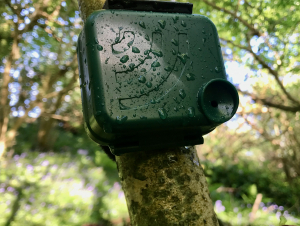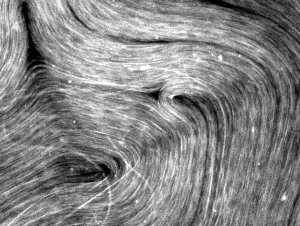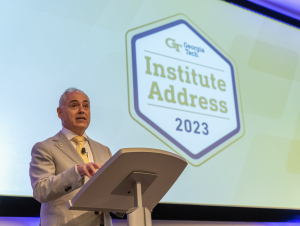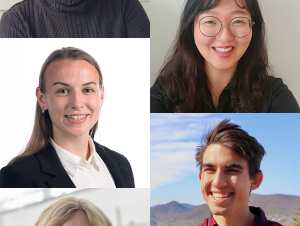To request a media interview, please reach out to experts using the faculty directories for each of our six schools, or contact Jess Hunt-Ralston, College of Sciences communications director. A list of faculty experts is also available to journalists upon request.
Latest News
Scientists at the Georgia Institute of Technology and Max Planck Institute for Intelligent Systems in Stuttgart have published a perspectives piece on the different tools used throughout the world aiding in the conservation of wildlife and biodiversity.
Physicists have developed a new model and clearer picture of molecular movements within active matter — bringing science a step closer to designing specific functions into new materials, and understanding emergent behaviors.
President Ángel Cabrera highlighted Georgia Tech’s record-breaking year.
Rare earth elements are critical to technology, electronics, and rapidly evolving clean energy efforts. Equipped with a new NSF grant, Yuanzhi Tang is helping find and unlock these key minerals in Georgia kaolin deposits.
The Brook Byers Institute for Sustainable Systems (BBISS) Graduate Fellows Program provides graduate students with enhanced training in sustainability, team science, and leadership in addition to their usual programs of study.
Alex Robel and Shi Joyce Sim have a new model for how water moves under glaciers. Their theory shows that up to twice the amount of subglacial water that was originally predicted might be draining into the ocean – potentially increasing glacial melt, sea level rise, and biological disturbances.








